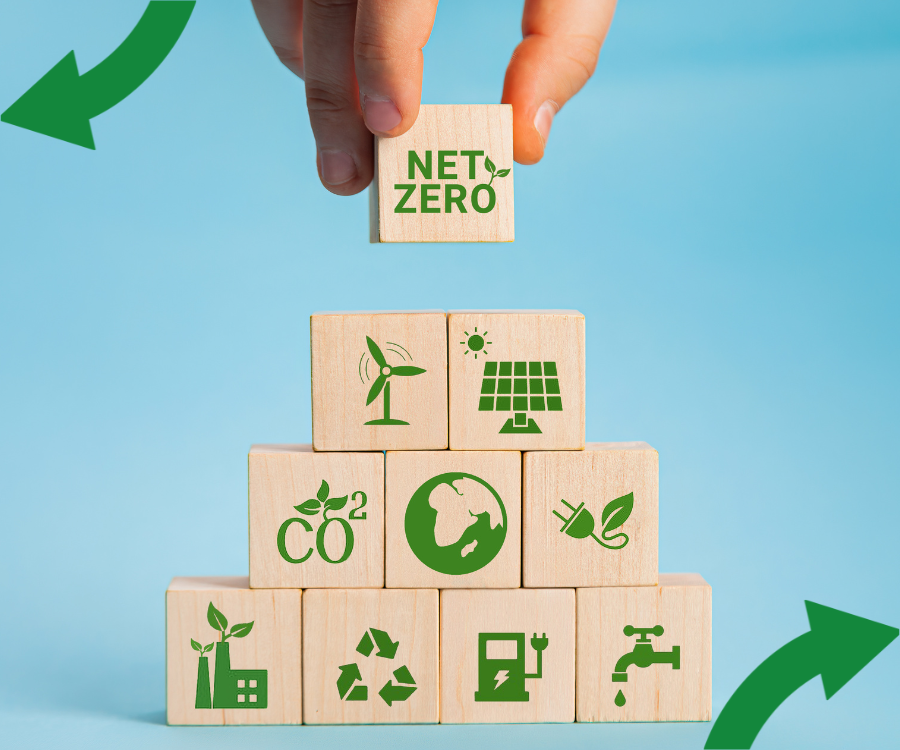Ahead of Net-Zero Week, which runs from 1st to 7th July, our team have been myth busting Net Zero to help you navigate the truth from the rumours.
Net Zero is a state which will only be achieved when there is a balance between greenhouse gases emitted and removed from the atmosphere by human activities.
A considerable amount of work is required by governments, individuals and businesses to make this happen, both in the UK (who’s Net Zero target is 2050) and globally.
Failure to do so will have detrimental effects to not only the natural environment but to society as a whole, with an increased likelihood of supply chain shortages, natural resource limitation and economic uncertainty.
“It’s fine for business to continue as usual”
It’s clear that we won’t reach Net Zero, and avoid the effects of global temperature rises, with a business-as-usual approach. Strategies and plans that stick with the status quo lead to a delay in the carbon reductions plans we need businesses to develop.
Net Zero solutions require businesses to be bold and think outside of the box. Innovative ideas can be developed by engaging all areas of an organisations and by utilising different skills and experience to come up with solutions. A good way to initiate these ideas is to undertake an environmental training session with your team.
“We can offset most of our emissions to reach to Net Zero”
A carbon offset is essentially a token investment in a project that avoids, reduces or removes emissions elsewhere to compensate for emissions produced by a business.
However, carbon offsets do not reduce the root cause of emissions and they are leading to a delay in real carbon reduction. A recent study also found that 90% of offset credits by the worlds leading certifier Verra did not represent genuine reductions. If we only focussed on simply offsetting emissions we would fail to reach net zero as emissions would continue to rise, like they are today.
There are some positives to supporting carbon offset projects as many take place in emerging markets and can have social and sustainable development benefits. However, businesses should prioritise carbon reduction first and not use carbon offsets as a solution and distraction to continue with business as usual.
“We can leave everything until closer to 2050”
Despite most Net Zero targets being for 2050, which feels far away, most of the work needs to be within the next few years. According to the leading climate scientists (the IPCC) if we are going to reach Net Zero by 2050 we need to reduce our emissions by 50% by 2030 if we are going to avoid the worst case scenario irreversible climate change.
“It’s better for my business to wait a few years before investing in energy saving solutions”
When it comes to investing in renewable energy generation for your business, waiting can lead to missed opportunities and increased costs. Here’s why it’s beneficial to invest now:
Unforeseen events: Energy crises, volatile fossil fuel prices, or policy changes can impact the availability and affordability of traditional energy sources. By investing in renewable energy now, you can hedge against these uncertainties and secure a stable and sustainable energy supply for your business.
Cost savings: Renewable energy technologies have become increasingly cost-effective over the years. Delaying investment means potentially missing out on the financial benefits of reduced energy costs in the long run. By investing now, you can start saving on electricity expenses and potentially even generate revenue through excess energy production or participation in incentive programs like feed-in tariffs or net metering.
Long-term cost stability: Renewable energy sources such as solar or wind power provide long-term price stability compared to traditional energy sources that are subject to price volatility. By investing in renewable energy now, you can lock in lower energy costs for the future, protecting your business from rising energy prices.
Start your journey towards to net zero
If you need help getting started, our expert environmental consultants can work with you to calculate your emissions and establish a comprehensive pathway for your business to reach net-zero emissions.


